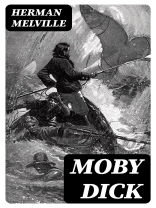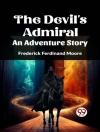Herman Melville’s ‘Moby Dick’ is an intricately woven tale that combines elements of adventure, philosophical musings, and profound psychological depth. The novel follows Ishmael, a sailor aboard the whaling ship Pequod, led by the monomaniacal Captain Ahab, who is obsessed with seeking revenge on the elusive white whale, Moby Dick. Through its innovative narrative style, which shifts between lyrical prose and dramatic dialogue, the novel interrogates themes of obsession, existence, and the sublime terror of nature. Published in 1851, ‘Moby Dick’ stands as a landmark of American literature, offering a critique of 19th-century industrialization and humanity’s relationship with the natural world. Melville drew upon his own experiences at sea, having sailed on whaling ships in the Pacific, which imparts authenticity and depth to his portrayal of whaling life. His extensive reading of works by Shakespeare, the Bible, and nautical texts influenced the philosophical dialogue that permeates the book. ‘Moby Dick’ reflects Melville’s grappling with existential questions and moral quandaries, revealing layers of complexity that speak to the human condition. Readers looking for a multifaceted literary experience will find ‘Moby Dick’ indispensable. It not only captivates with its epic narrative but also invites deep reflection on the nature of obsession and the quest for meaning. This seminal work has influenced generations of writers and scholars, making it essential reading for those seeking to explore the complexities of fate, vengeance, and human ambition.
About the author
Herman Melville (1819–1891) was a renowned American novelist, short story writer, and poet of the American Renaissance period. His prolific and diverse literary contributions captured the complexity of human experience, often delving into philosophical depth, which earned him a prominent position among American authors. Melville’s masterwork, ‘Moby Dick; or, The Whale’ (1851), stands as a towering achievement in American literature. Initially dismissed by contemporaries, it was later celebrated for its intricate narrative and rich symbolism, foreshadowing modernist narrative techniques. The story of Captain Ahab’s obsessive quest for the elusive white whale, Moby Dick, provides profound insights into the human condition, the struggle between good and evil, and man’s confrontation with the natural world. An epic sea tale, ‘Moby Dick’ combines adventure with meditations on existence, integrating Shakespearean and Biblical allusions to enrich its meanings. As an author, Melville’s style was marked by his descriptive power, complex characters, and an exploration of existential angst. His works have been scrutinized extensively, revealing a multi-faceted author whose foresight and narrative prowess prefigured many future literary movements. Though his popularity waned during his latter years, Melville’s oeuvre, particularly ‘Moby Dick, ‘ experienced a posthumous revival and he is now firmly situated as a central figure in the canon of American literature.












